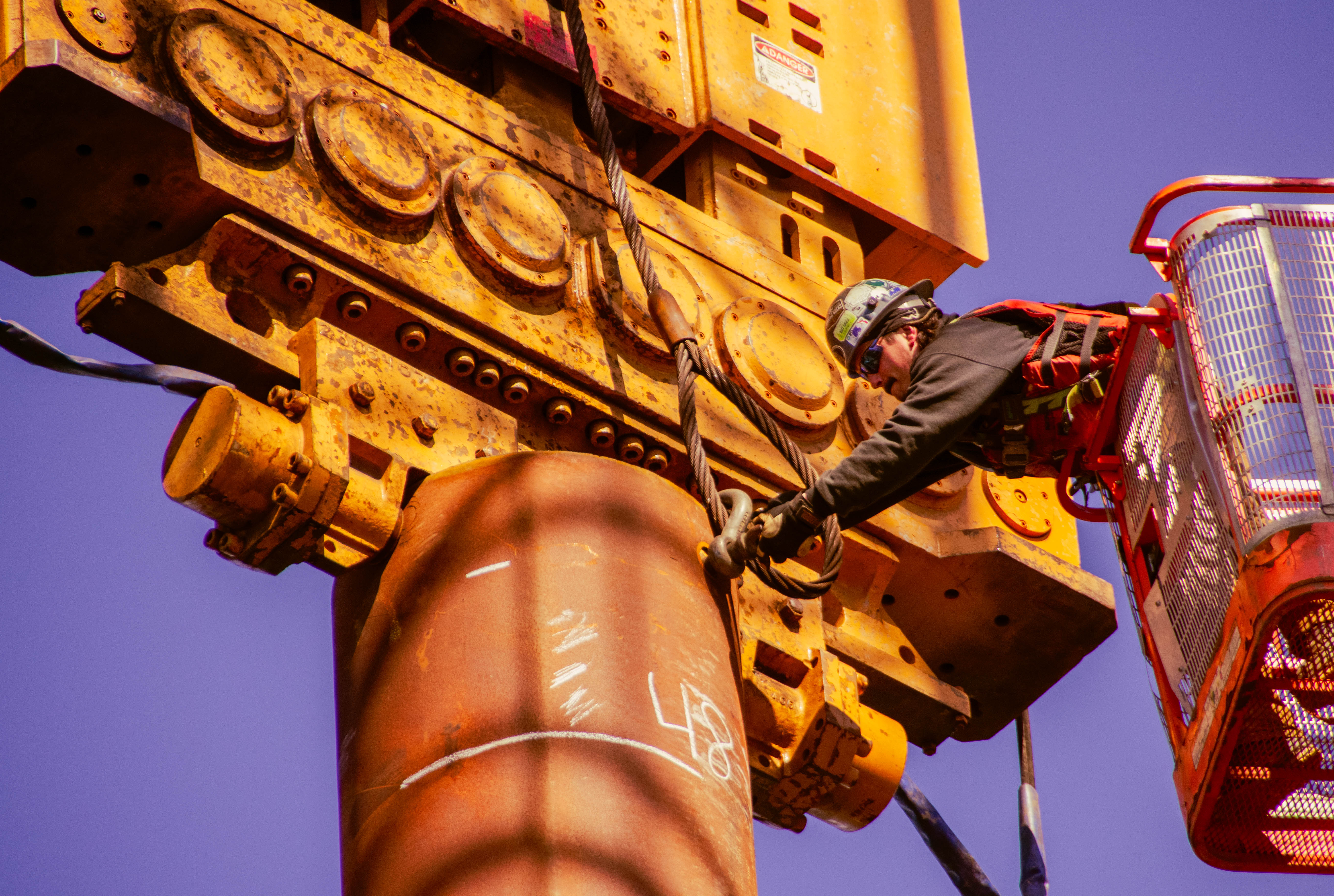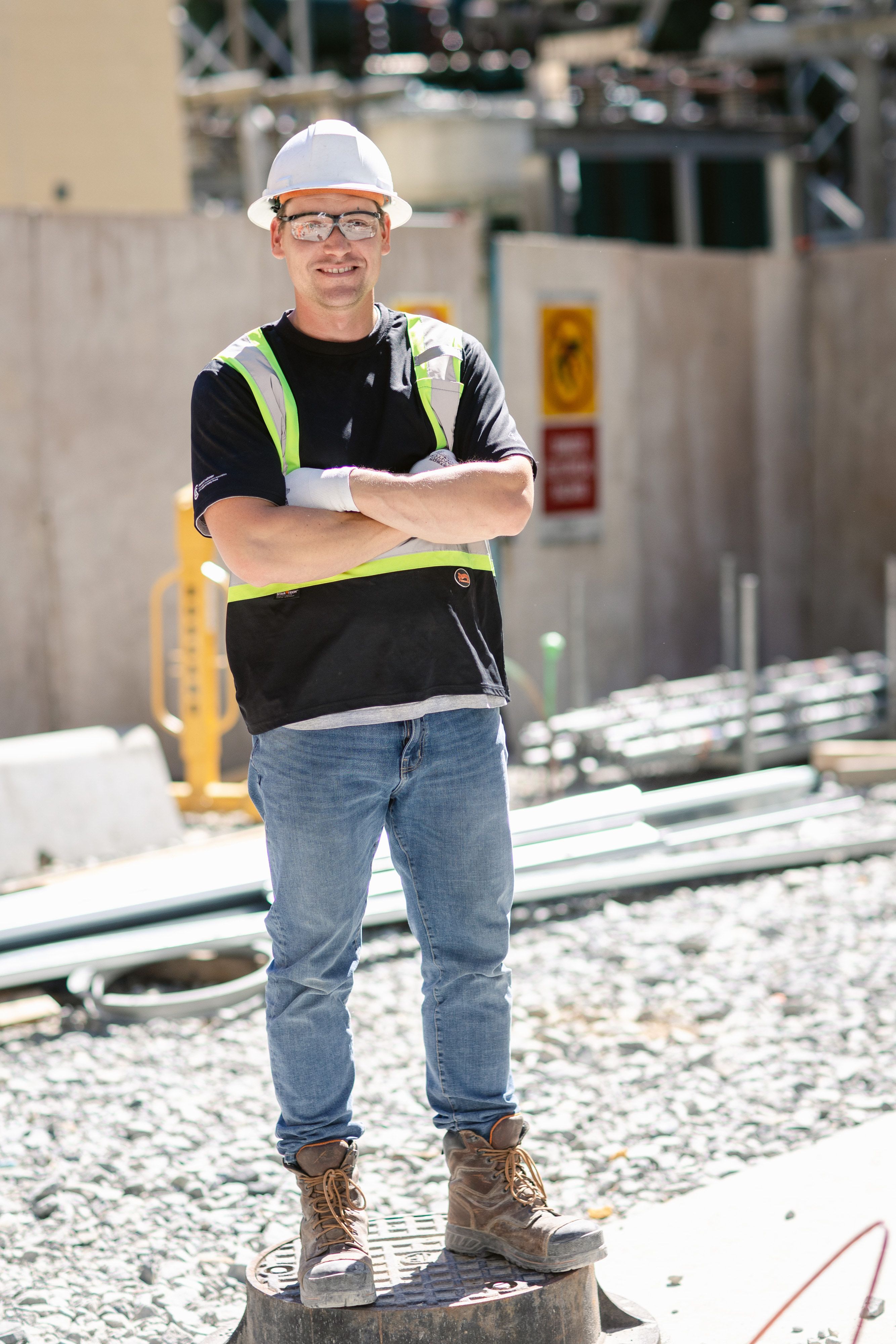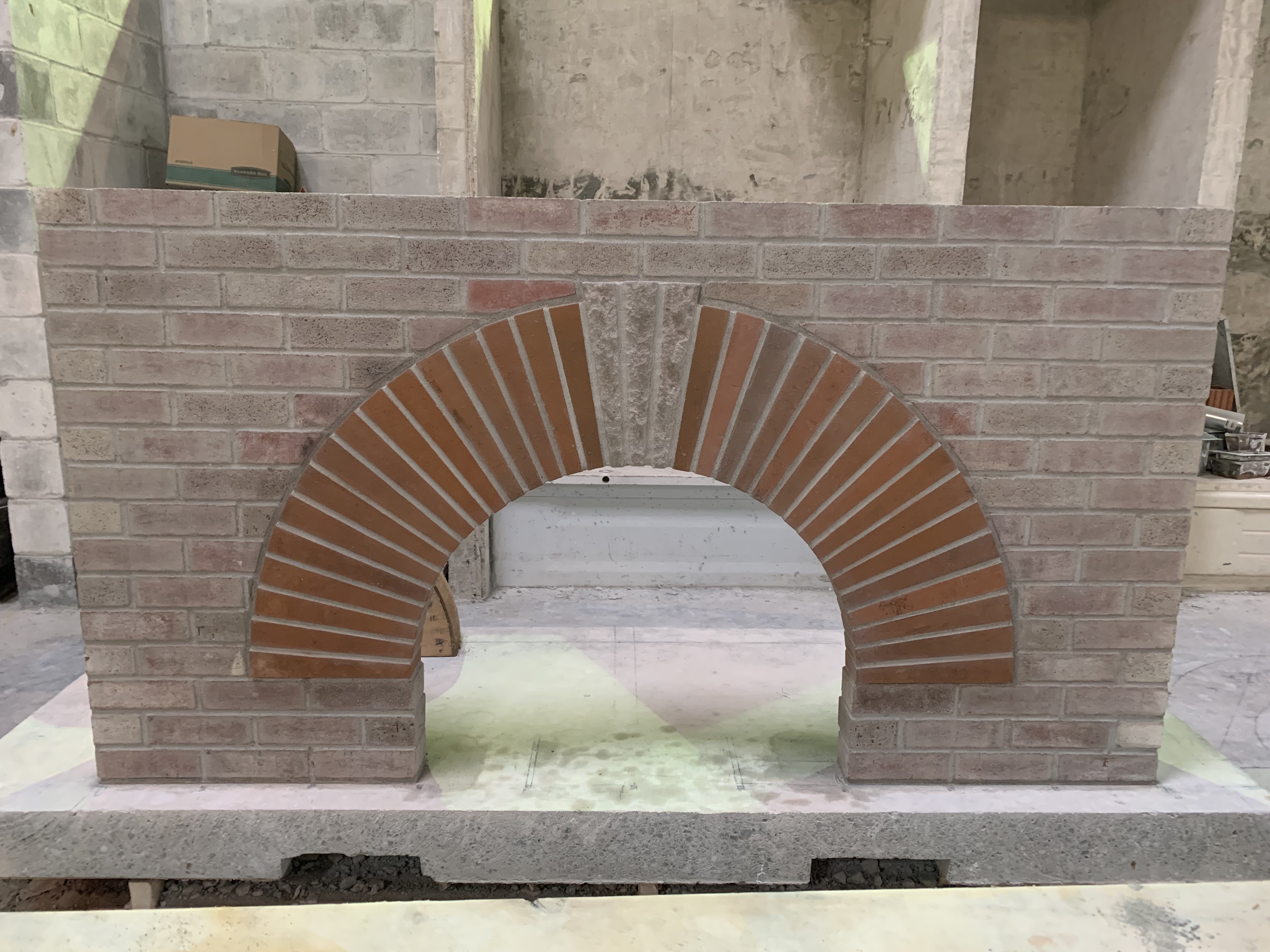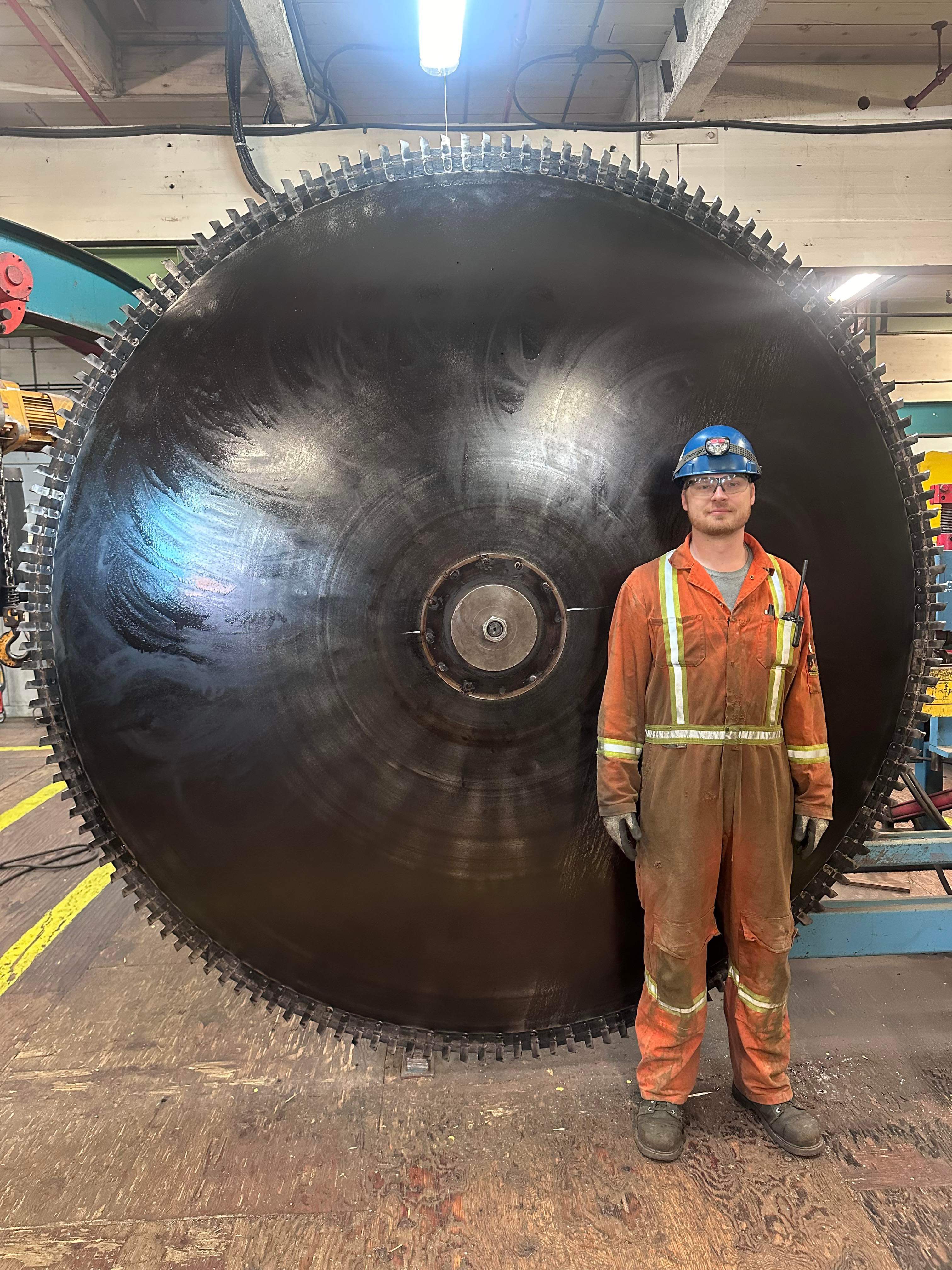Explore 5 Trades
Is one a fit for you?
Explore 5 Trades
Is one a fit for you?

Learn more about these five skilled trades - there are nearly 90 apprenticeship pathways available for you to explore.
What trades come to mind when you think of “skilled trades”? Maybe trades such as Electrician, Plumber, Carpenter, and Cook? But really those are just a handful of dozens of skilled trades pathways available in many different industries.
SkilledTradesBC manages nearly 90 trades programs with dozens of them being Red Seal trades – that’s a lot of trades! There are so many different kinds of skilled trades that are vital to the success of every industry and community. We are highlighting some skilled trades below that support industries all over the province. Perhaps you might not sign up for Saw Filer training tomorrow, but you’ll definitely have a bit more insight into some of these five trades.
To look into these trades and more (nearly 90!) – visit our website’s Find Your Trade section to learn more about different pathways to suit your interests and strengths.
Construction Craft Worker (CCW)

Construction Craft Workers (Labourers) are a critical function of construction sites – they set up and take down the sites and work collaboratively with other tradespeople to ensure a safe, efficient and productive worksite.
CCW tasks include site preparation and cleanup, setting up and removing access equipment, and assisting on concrete, masonry, steel, wood and pre-case erection projects. They handle materials and equipment and perform demolition, excavation and compaction activities. They may also perform site safety and security checks.
CCWs perform a variety of work depending on the job site and scheduled work and are called upon to support in many different kinds of construction activities. Their skills and contributions are highly valued and CCWs can find a huge diversity of work sites if they wish – as they are needed on projects such as large infrastructure projects to moderate residential builds. And as this is a Red Seal trade, a qualified CCW could find work anywhere across Canada.
Training Requirements: 8 weeks over 2 years + 4000 work hours
Piledriver and Bridgeworker

Piledrivers and Bridgeworkers are collaborative and versatile builders involved in the creation, repair and removal of the many marine structures that make waterways efficient and safe to use. This unique and niche trade offers experience in a variety of marine-based work including the construction/installation/repair/removal of deep piles and caisson foundations and other installations such as bridges, docks, wharves, tunnels and bulkheads.
Piles are the wood or concrete support structures that are integral to the construction of large projects such as bridges, piers and building foundations. Piledrivers operate the machinery that put these piles into place but also oversees and prepare the site for proper and safe installation. Some piledrivers are also commercial divers and perform construction tasks underwater.
Training Requirements: 18 weeks over 3 years + 3600 work hours
Image notes: Members of Local 2404 members working for Pacific Pile & Marine (PPM) in Prince Rupert. Photo/photos by Travis Tambone, Carpenters' Regional Council
Bricklayer (Mason)

Bricklayers build the sturdy and beautiful brick or stonework (masonry) that has been the foundation of homes and buildings for centuries. This trade is physical in nature that is also artistic and technical.
Bricklayers are a critical member of construction teams and work collaboratively with other teams and tradespeople. They are masters of brick installation and must know how to read and translate blueprints, prepare their tools and materials, construct and install masonry, restore and repair existing masonry and be able to troubleshoot and problem solve quickly and safely.
Bricklayers don’t just build walls – they create other structures from brick such as arches, fireplaces, chimneys, furnaces, kilns and masonry systems. They also use materials outside of traditional brick such as natural stone, manufactured stone, tiles, glass blocks, concrete blocks, precast masonry panels, and lightweight insulated panels.
Training Requirements: 18 weeks over 3 years + 4860 work hours
Image notes: A brick project at the Trowel Trades Training Association (TTTA), photo courtesy of TTTA.
Saw Filer

Saw Filers perform a unique and highly technical role in the maintenance of high capacity saws in industrial settings – predominantly in the lumber manufacturing industry. Saw Filers must know how to maintain all types of saws which makes them indispensable in numerous industries. These saws include circular saws, band saws, gang saws, chain saws and the calibration of machinery that utilizes saws. These tradespeople must also understand the operation, maintenance and repair of saw sharpening equipment. This trade is also technically demanding with precision measuring and calibration being key to ensuring a properly maintained saw.
Safety is critical to this trade – both as a Saw Filer and responsibility to those operating these complex industrial saws in workplaces.
Training Requirements:10 weeks over 2 years + 4200 work hours
Image notes:
This is a 9 foot cut-off saw that is still used to cut large logs to length. It is the first saw in the mill line and would cut through a 48" in diameter log in just a few seconds. For scale, the filer in the picture is around 6'2"-6'3" tall. Photo courtesy of Reggie Hewitt, Thompson Rivers University.
Concrete Finisher
Concrete Finishers are important contributors to a wide range of construction projects as they install, maintain, and repair concrete structures. Concrete Finishers are tasked to use their knowledge and skills to expertly install, shape, and repair concrete. This also includes shaping concrete as an expression of design as well as function.
Concrete Finishers are a part of a team that prepares different aspects of concrete installation – this includes preparing the surface, preparing the right kind of concrete, pouring and then the finishing of concrete while wet and then once set. While this role is very physical, Concrete Finishers must have a good eye for detail and timing – once the concrete is cured, fixing it is very difficult.
Concrete Finisher is also a Red Seal trade – which means their standards of qualifications will be recognized across Canada.
Training Requirements: 12 weeks over 2 years + 3240 work hours
